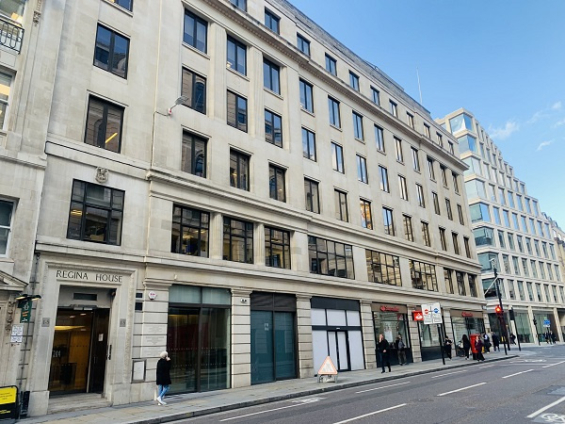LONDON — Oil conglomerate Trafigura’s Ghana Power Generation Company (GPGC) has taken control of Regina House, one of Ghana’s most valuable commercial properties in London, following the West African nation’s failure to pay a $134 million judgment debt, Ghanaian officials confirmed Thursday.
The seizure comes after four years of unsuccessful attempts by Trafigura to secure payment from the Ghanaian government. The debt stems from a 2021 UK tribunal ruling that found Ghana in breach of its contractual obligations when it terminated a power purchase agreement with GPGC on February 18, 2018.

Papa Owusu-Ankomah, Ghana’s High Commissioner to the United Kingdom, disclosed in an exclusive interview with Joy News that Trafigura’s GPGC now has full control over revenues accruing from the property. “Until we pay in full or come into an arrangement to pay them,” Owusu-Ankomah stated, “Trafigura will remain in control over the receivership of the Regina House and its proceeds.”
The High Commissioner acknowledged Ghana’s current financial challenges and called for further negotiations to address the compounding interest on the debt.
The UK tribunal initially awarded GPGC $134,348,661 in damages, including interest at a rate of six-month USD LIBOR plus 6%, and reimbursement of arbitration fees totaling $3,309,877.74. Ghana made partial payments amounting to $1,897,692.40 but failed to clear the remaining balance.
Following unsuccessful attempts to secure the full payment, GPGC filed a case in the U.S. District Court on January 19, 2024, seeking to recover the compounding debt under the New York Convention and Chapter 2 of the Federal Arbitration Act.
Chief Judge James E. Boasberg of the U.S. District Court ruled in favor of GPGC on August 6, 2024, emphasizing that the arbitral award falls under the New York Convention, which requires member states to recognize and enforce such awards. The court will also award post-judgment interest at the rate specified in U.S. codes, further increasing Ghana’s financial burden.

Ghana’s Attorney General, Godfred Yeboah Dame, told Joy News that the responsibility for expediting payment lies with the Finance Ministry.
The seizure of Regina House has raised concerns about the transparency of the Ghanaian government’s handling of the situation. Bright Simons, Vice President of Imani Africa, a think tank, claimed on social media that information about the seizure was being concealed by the government.
This development highlights the ongoing challenges faced by Ghana in managing its international financial obligations and the potential consequences of defaulting on judgment debts. It also underscores the complexities of international arbitration and the enforcement of awards across jurisdictions.
As Ghana grapples with this significant financial setback, questions arise about the impact on its diplomatic and economic relationships, particularly with the United Kingdom, where the seized property is located. The situation may also affect Ghana’s credibility in future international business dealings and its ability to attract foreign investment.
The Ghanaian government now faces the task of negotiating a resolution with Trafigura while addressing the broader implications of this property seizure on its international standing and financial stability.



